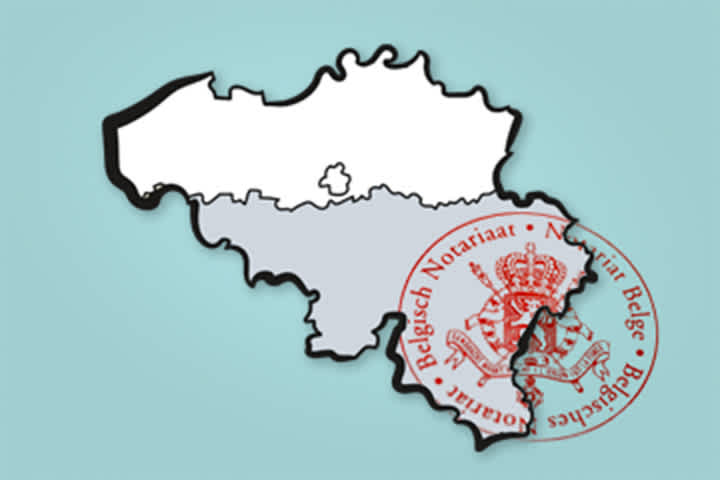Writing your own will? Avoid these 10 mistakes
Keytrade Bank
keytradebank.be
March 28, 2024
3 minutes to read
1. Writing a will together
A will is a personal document. Writing a joint will with your partner may sound like a romantic gesture, but it will never be legally valid. For a will to be legally valid, it must be dated, signed and written by just one person.
2. Typing your own will
Although typing documents is the norm nowadays, you need to make a handwritten will if you are writing your own. This guarantees its authenticity and prevents counterfeiting. A will that someone else wrote down for you is also not legally valid, even if you sign it yourself. There should be no doubt about your identity.
It is best to write your will in indelible ink. If you want to make a photocopy of your will for a confidential adviser, for example, you can, but bear in mind that a photocopy doesn't have the same evidential value as the original.
3. Forgotten date or signature
These requirements are crucial for the validity of a will. The date shows when the will was drawn up. This can be important when you determine your last wishes, especially if there are several wills. The signature confirms that it was actually you who drew up the will, and you were of sound mind when you wrote it. The absence of either the date or the signature may render the will invalid. One signature is sufficient; you don't need to sign all pages.
4. Not taking into account the mandatory portion of the estate to which your next of kin is entitled
If you are married and/or have children, in Belgium you can't just leave all your assets to anyone. The law protects both your spouse and your children. They are always entitled to a minimum portion of your estate, also referred to as the reserve. If they don't receive the portion to which they are entitled, they can challenge it.
The reserve of all the children together is half of your assets. If you have two children, each child is always entitled to a quarter of your assets. If you have three children, each child is entitled to a sixth. You are free to decide what to do with the other half.
Your spouse’s reserve includes the usufruct of half of your estate, and in all cases the usufruct of the family home and household contents. Usufruct refers to the right to enjoy the use and advantages of a property. As a usufructuary, your spouse may therefore continue to live in the family home or rent it out and receive the rent.
A legally cohabiting partner is not entitled to a reserve, but does inherit the usufruct of the shared home and household contents. Good to know: if you want, you can limit or cancel this particular entitlement in your will.
5. Hiding a will too well
It is essential that your will can be found after your death. If you hide it too well, it may never see the light of day, leaving your last wishes unknown and unfulfilled. Consider sharing the existence and location of your will with someone you trust to make sure it will end up in the right hands. If you want absolute certainty, have your will drawn up by a notary or present your handwritten will to the notary to be included in the Central Will Register. In the event of your death, your next of kin will appoint a notary. The notary will then perform a search in the Central Will Register. This will ensure that your will is found. The opposite – not hiding your will well enough – can also be a problem: self-written wills are not always kept in a safe place and are sometimes lost. They may also fall into the wrong hands, and perhaps even end up in the bin deliberately.
6. Waiting too long
Many people postpone drawing up their will, often thinking there is still plenty of time. If you die unexpectedly, such procrastination may mean that your last wishes will always remain unknown. From the age of 16, you can draw up a will, although it can only be for half your assets. If you are 18 or older, you can draw up a will for all your assets. Please also note that you can only draw up a will when you are still legally competent, and you have the mental capacity.
7. Being too vague
A will that leaves room for interpretation may lead to family disputes and a legal battle over your estate. Unambiguous and precise wording is essential to ensure your wishes are clear and can be properly executed. Avoid general terms and be as specific as possible about your intentions. There should be no doubt as to the identity of the persons to whom you wish to leave your assets. If you want absolute certainty, consider a notarial will rather than making one yourself.
8. Outdated information
Life changes and our relationships, possessions and wishes change along with it. A will that is not updated may refer to people who are no longer important in your life or to property you no longer have. A regular review of your will ensures that it remains an accurate reflection of your last wishes. You can always amend, revoke or refine a will as long as you are legally competent.
9. Forgetting about your digital legacy
In an age where our lives are partly lived online, it is important to also think about what happens to your online presence after your death. This includes social media accounts, digital photos and online assets such as cryptocurrencies.
10. Leaving assets to professional caregivers
The law stipulates that some people can't receive gifts or be included in a will. They include doctors and other healthcare providers who treated someone during the illness from which the patient died. The same applies to administrators and staff of residential elderly care facilities. Clergymen and representatives of the Belgian Central Secular Council can't simply be included in a will either. There may be some confusion with regard to caregivers, non-professional carers and volunteers. At the end of life, someone may become emotionally attached to a volunteer caregiver. If necessary, the volunteer may have to prove that they did not influence the patient in their decision. Otherwise, the will may be declared null and void.


